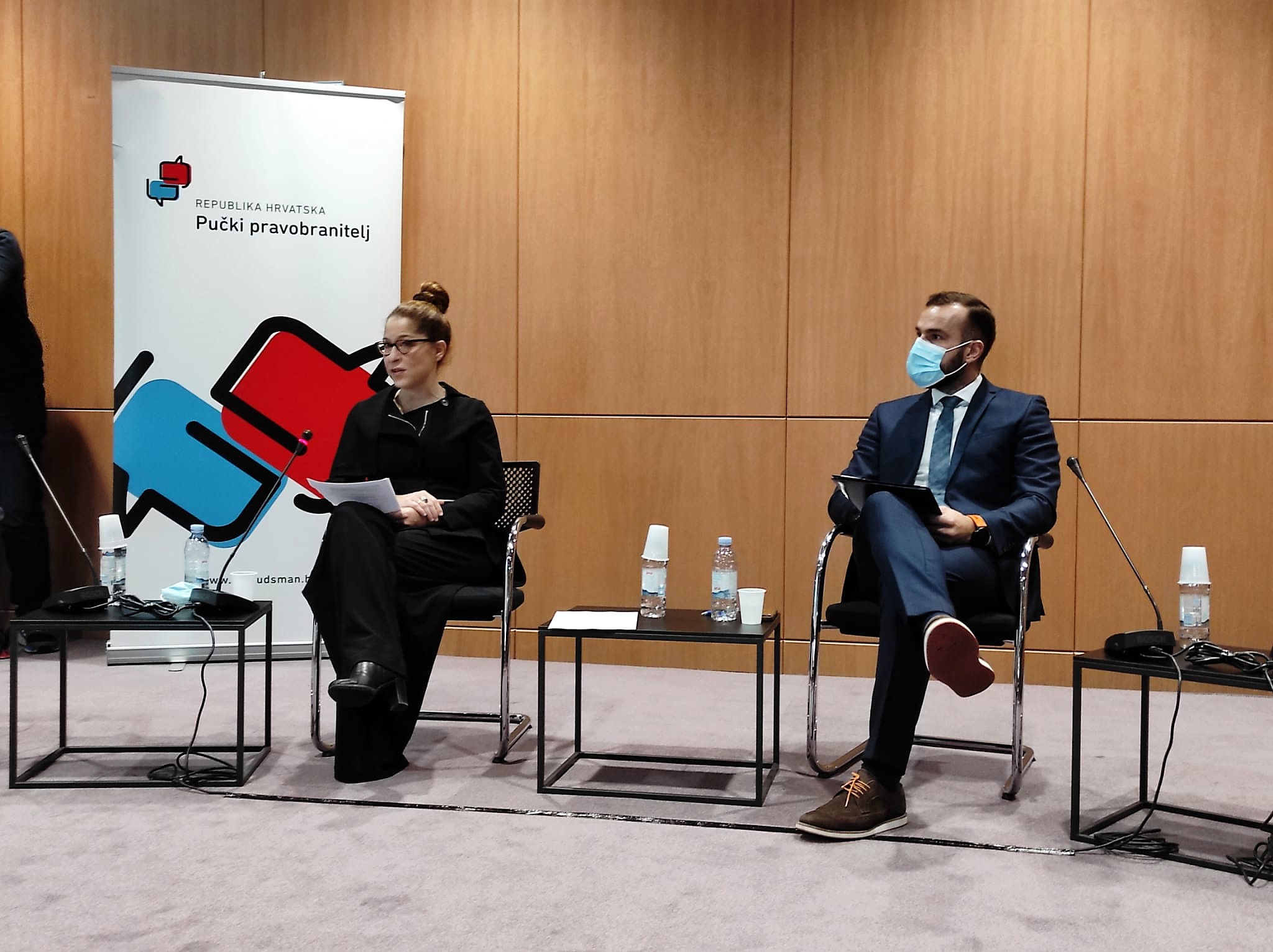It is important to continue the discussion on the Draft Proposal of the Social Welfare Act, and the outcome of its adoption should be a well-organized, responsive, and preventive system with adequate benefits, connected to the local community, ensuring that rights and services are accessible to citizens regardless of where in Croatia they live. At the same time, it is necessary to relieve the burden on system employees so they can effectively provide rights and services to citizens. All participants in the discussion, organized on 15 November by Ombudswoman Tena Šimonović Einwalter on the topic of social welfare reform, agreed on this.
For consistent practice and legal certainty, the Ombudswoman emphasized that the provisions of the Act need to be more precisely formulated, and that the rights should be listed within the Act, as was the case in previous legislation. It is also important to thoroughly assess the potential effects of system centralization and changes to the status of social welfare centers, and to further discuss these proposals, she noted, reiterating that the focus must remain on citizens – the system’s users.
The Minister of Labour, Pension System, Family and Social Policy, Josip Aladrović, welcomed this discussion and emphasized that the current system faces numerous problems – high fragmentation, an excessive number of responsibilities for social welfare centers, a lack of staff, and inconsistent practices. He noted that there will be no layoffs in the reform process.
The proposal to abolish the legal personality of social welfare centers provoked the most reactions during the public consultation process and in the general public, partly due to the lack of evaluation or impact assessment of this proposed change. Professor Zdenko Babić from the Social Work Study Centre at the Faculty of Law in Zagreb reiterated that reform is necessary, “but it must be carefully prepared and based on previously established scientific research and analytical insights, as well as the actual needs of users.” Representing the Croatian Chamber of Social Workers and the Croatian Association of Social Workers, Štefica Karačić called for openness to the arguments of those who make up the system and work directly with its users, stating that “this proposal does not bring opportunities for significant improvement in the lives of the most vulnerable groups.”
Magdalena Komes, representative of the Association of Cities in the Republic of Croatia, supported the proposed changes and emphasized the importance of inspections in homes for the elderly, which benefit both older persons and service providers. Tatjana Štritof, Director of the Social Welfare Centre Zagreb, believes that there is currently a sense of fear in the system due to the announced organizational changes but hopes that these changes could help resolve existing funding issues, given that not all centers have the basic means to operate. Tatjana Katkić Stanić from the Ministry of Labour, Pension System, Family and Social Policy stated that the role of social welfare centers will not change significantly and that they will continue to provide services to users, while the Institute, as a central unit, will take over administrative tasks, precisely to give the centers more capacity for working with citizens.
Experiences from working with users were shared by Nedjeljko Marković, President of the Croatian Network for Combating Poverty, and Zvonko Mlinar, Executive President of the Croatian Network for the Homeless. They identified the potential loss of connection with the local community – which should be the engine of the system – as one of the risks of the proposed reform. Marković sees the increase in the guaranteed minimum benefit as a positive change, and the reduction in housing cost assistance as a negative one, while Mlinar called for stronger cooperation between the Ministry, social welfare centers, and civil society organizations. The perspective of private care home owners was presented by Sabina Angelina Latin from the Starka Association, who noted that due to the lack of adequate care for older persons, a black market already exists – one that will only expand if the proposal to abolish family homes and transform them into social welfare institutions or foster families is implemented. Latin believes this proposal would lead to a decline in service quality for users, reduced capacity, and increased costs for other systems, such as the healthcare system.
In concluding the discussion, Ombudswoman Šimonović Einwalter expressed hope that some of the arguments raised by participants would be incorporated into the Act and welcomed Minister Aladrović’s announcement that dialogue on the outstanding issues would continue. The Ombudswoman stressed that this dialogue should persist beyond the upcoming parliamentary procedure, since reform is not a one-time action but an ongoing process that requires extensive dialogue to be truly successful.
A full recording of the discussion, titled “The Social Welfare Act – A Step Forward or Backward for the Most Vulnerable”, is available here.





